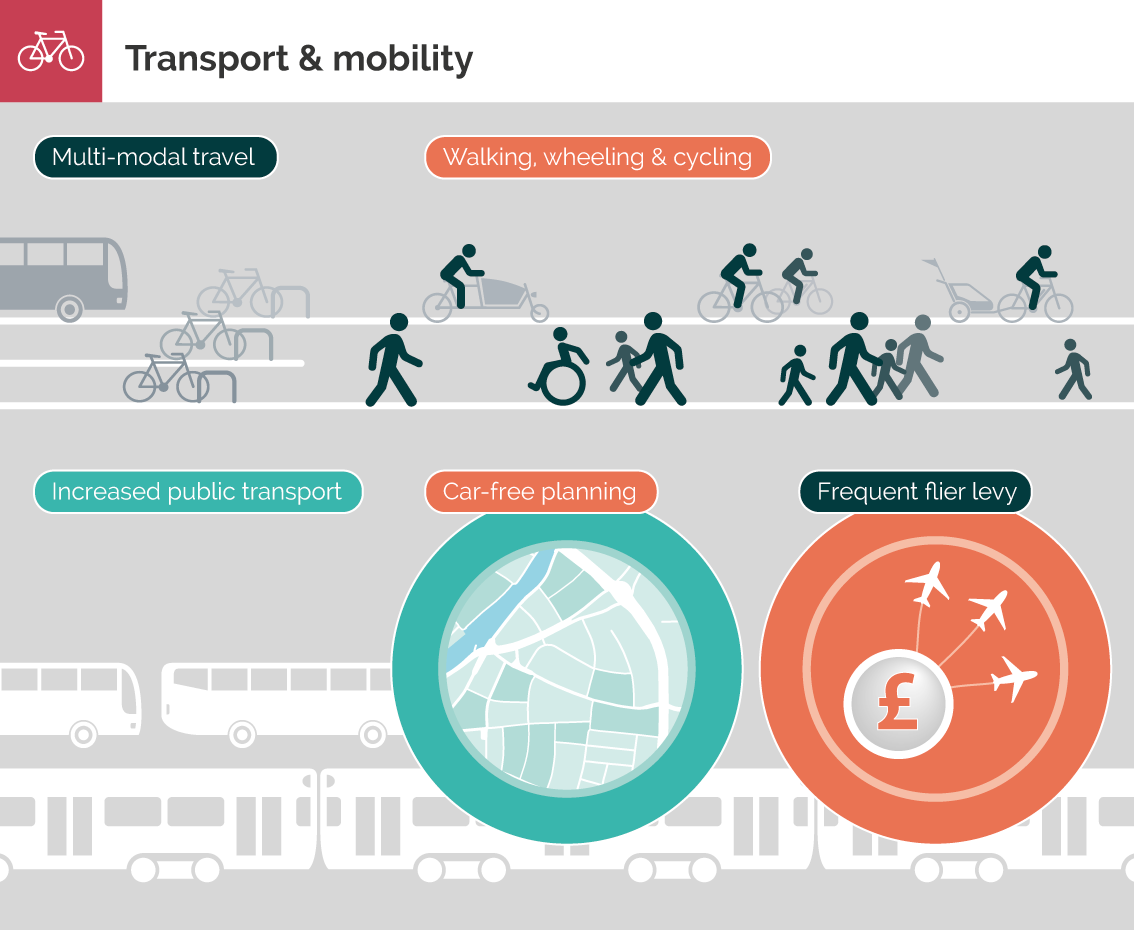
Moving towards net-zero carbon transport systems quickly requires both shifting to more sustainable travel modes and to decarbonised fuels. The amount of energy we use from transport could be reduced by 60% by 2050, by a combination of people becoming more ‘multi-modal’ and less car dependent.
This potential is larger than other energy using sectors, and is critical for rapid reductions in oil demand. Current UK government policy focuses predominantly on electric vehicles. The limited attention to modal switch restricts what can be achieved in the next decade, and therefore the speed of overall transition [1, 2].
Travel demand is very unevenly distributed across the population, particularly by income, but also by location. A small number of long-distance trips, largely by people with higher incomes and for leisure, is responsible for a large proportion of personal transport related energy use [3]. It is long distance travel that is going to be most problematic for decarbonisation. Aviation is particularly difficult to decarbonise, and has non-CO2 emissions with substantial greenhouse impacts. ‘Destination shift’, as well as ‘mode shift’, is therefore likely to be needed to gain the most energy demand reductions.
Cars are an expensive resource with a very low utilisation: a maximum 15% of private cars is in use at any one time, and over 30% do not move at all on any given day [4]. High levels of car dependence are therefore economically inefficient. There is substantial potential for increased car sharing. There are some positive trends, in particular declining car ownership and use by young adults [5].
Lower energy travel solutions are highly location dependent. Urban dwellers who walk or cycle have lower energy use and carbon emissions from daily travel than those who do not, despite some walking and cycling being additional to motorised journeys [6]. Public transport, in particular buses, can play a substantial role in reducing energy use and making mobility more sustainable [7].
Evidence
- The role of energy demand reduction in achieving net-zero in the UK | CREDS report, 2021
- The role of energy demand reduction in achieving net-zero in the UK: Transport and mobility | CREDS Report, 2021
- Curbing excess: high energy consumption and the fair energy transition | CREDS report, 2022
- A week in the life of a car: a nuanced view of possible EV charging regimes | Research paper, 2019
- Less is more: Changing travel in a post-pandemic society | CREDS report, 2022
- Chapter 11: Cycling, climate change and air pollution | Research paper, 2022
- Decarbonising transport: The role of buses | CREDS & LGA Briefing, 2020
Banner photo credit: Pat Whelen on Unsplash
